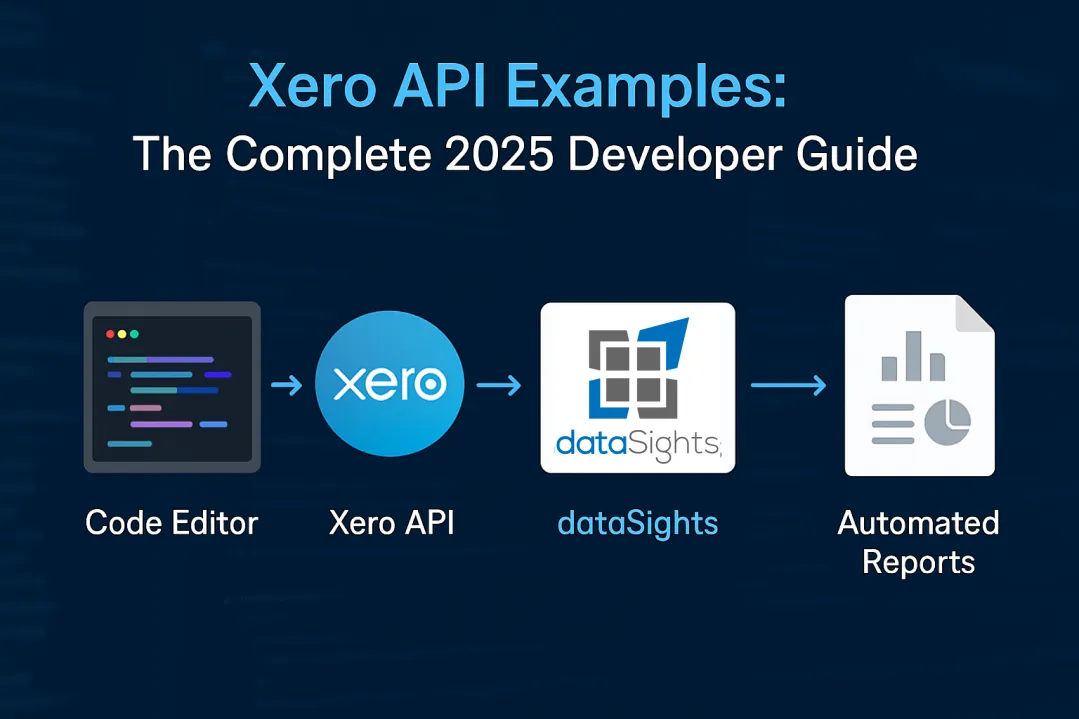Getting Started with Xero API Integration: Endpoints, Tokens, and Best Practices
Summary
In today’s digital-first business environment, automating accounting processes has become a necessity. Xero, a leading cloud-based accounting software, offers a powerful API that allows businesses to connect their financial data with other applications seamlessly. By integrating Xero via its API, […]

In today’s digital-first business environment, automating accounting processes has become a necessity. Xero, a leading cloud-based accounting software, offers a powerful API that allows businesses to connect their financial data with other applications seamlessly. By integrating Xero via its API, companies can streamline workflows, reduce manual errors, and improve data visibility across departments.
This article will guide you through the basics of getting started with Xero API integration, including key endpoints, authentication tokens, and best practices.
Understanding the Xero API
The Xero API is a set of programming interfaces that allows developers to interact with Xero’s accounting system programmatically. With the API, you can perform tasks such as creating invoices, managing contacts, reconciling payments, and retrieving financial reports without manual intervention. The Xero API supports RESTful architecture, which means it uses standard HTTP methods like GET, POST, PUT, and DELETE to access and manipulate data.
Key API Endpoints
When integrating with Xero, it is essential to understand the primary endpoints that businesses frequently use:
1. Invoices Endpoint
This endpoint allows you to create, update, and retrieve invoices. It is particularly useful for automating billing processes and ensuring timely revenue recognition.
2. Contacts Endpoint
Use this endpoint to manage customer and supplier information. Synchronising contacts between systems ensures consistency and reduces the risk of errors in transactions.
3. Payments Endpoint
The payments endpoint enables recording and retrieving payments, allowing businesses to reconcile accounts efficiently and maintain accurate cash flow records.
4. Bank Transactions Endpoint
This endpoint is vital for automating bank feeds, importing transactions, and reconciling accounts without manual effort.
5. Reports Endpoint
Retrieve financial reports such as balance sheets, profit and loss statements, and GST summaries. Automated reporting improves decision-making and operational efficiency.
Authentication with Tokens
Security is a critical aspect of API integration. Xero uses OAuth 2.0 for authentication, which provides a secure method for applications to access data. Here is a quick overview:
1. Client ID and Client Secret:
When registering your application in Xero’s developer portal, you receive a unique client ID and secret. These credentials identify your app to Xero’s servers.
2. Access Token:
The access token allows your application to interact with the API on behalf of the user. Access tokens have limited lifespans and require periodic refreshing.
3. Refresh Token:
This token is used to obtain a new access token without requiring the user to reauthorise the application, ensuring continuous integration.
It is important to store tokens securely and refresh them as needed to maintain uninterrupted API access.
Best Practices for Xero API Integration
Following best practices ensures a smooth and reliable integration:
1. Use Sandbox Environment First
Test all API calls in Xero’s sandbox environment before deploying them in production. This prevents errors from affecting live financial data.
2. Implement Error Handling
Always check for and handle errors returned by the API, including rate limits, validation issues, and network failures.
3. Minimise API Calls
Reduce unnecessary API calls to avoid hitting rate limits. Aggregate data requests where possible to optimise performance.
Conclusion
Getting started with Xero API integration can transform the way your business handles financial operations. Whether you are automating invoicing, synchronising contacts, or generating financial reports, Xero’s API provides the tools to make your accounting processes smarter and more effective.
